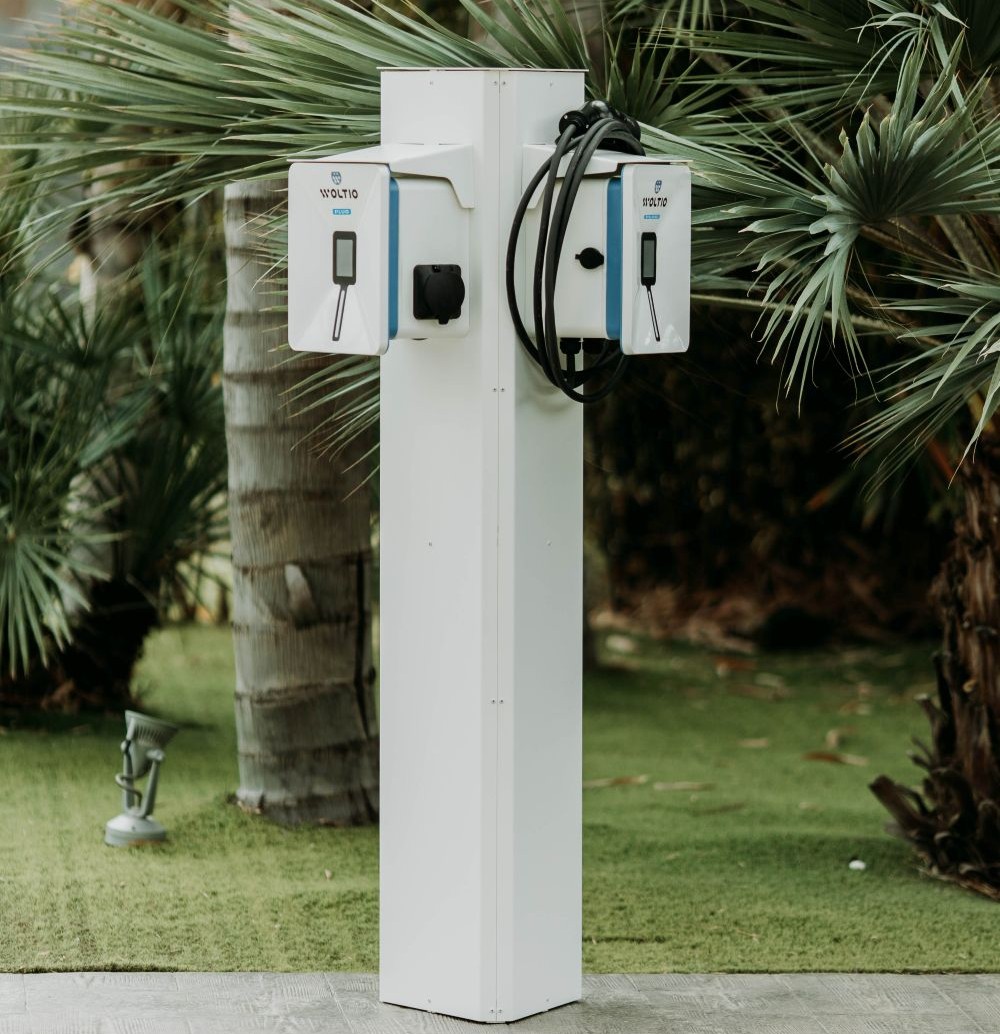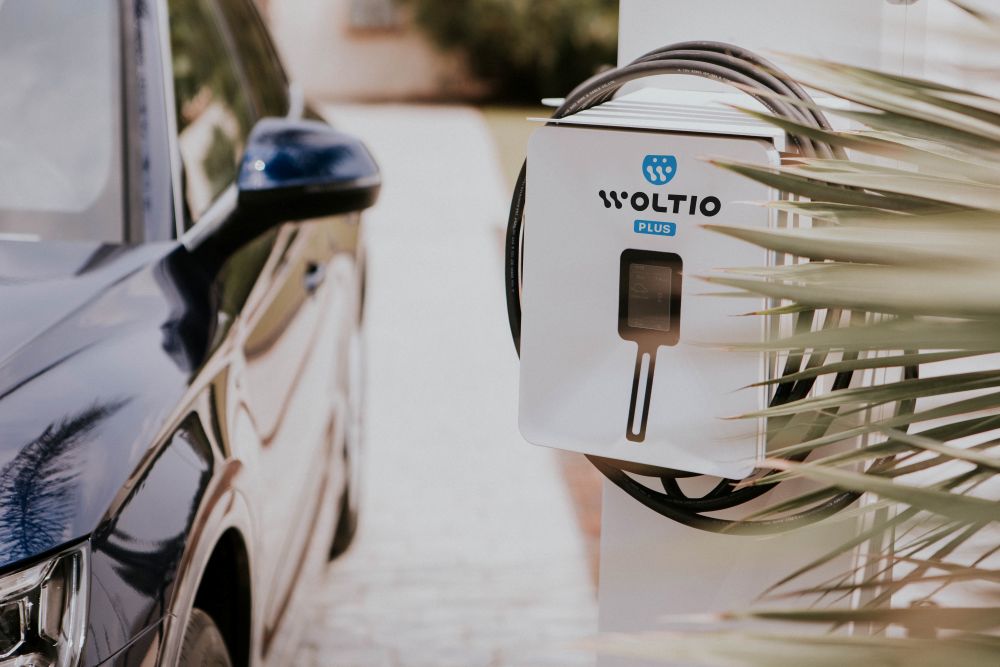
Good charging habits to maximize the range of your electric car
The range of an electric car depends to a large extent on how we care for and charge the battery.

In recent years, the rise of electric vehicles has brought with it numerous advances in technology and solutions for recharging these cars.
The technology that allows recharging the battery of an electric car has evolved in recent years, and its operation arouses the curiosity of many owners of an electric car, so let’s see how it works.
An electric car charger is a device in charge of transferring electrical energy to the vehicle’s battery.
The main function of this device is to convert the electric current from the mains (alternating current) into a current that can be used to store energy in the batteries (direct current, in many cases).
This is essential because car batteries require a type of energy that can be stored safely and efficiently.
The charging process starts when the user connects the car to the charger. At that point, the charger assesses the situation and establishes communication with the vehicle. This communication is essential to ensure that the energy transfer process is carried out correctly and safely.
The charger detects parameters such as battery charge level, system capacity and other technical aspects that may vary depending on the car model.
Once communication is established, the device proceeds to transform the alternating current (AC) supplied by the mains into a direct current (DC) that can recharge the battery.
This process is carried out thanks to electronic components that are responsible for regulating the voltage and current intensity. The correct regulation of these elements is essential to avoid damaging the battery and to maximize charging efficiency.

Conventional chargers are characterized by their simplicity. They operate in a straightforward manner without making too many adjustments throughout the charging process.
These units generally provide adequate performance for basic uses and are ideal in situations where continuous monitoring of charge status is not required.
Advantages of conventional chargers include:
However, these chargers do not allow for optimization of the charging process, as they do not adapt to changing conditions or to the specific needs of the battery throughout its lifecycle. This means they cannot take advantage of time slots when the price per kWh is lower, which can lead to higher energy costs for the user in the long run.
In contrast, smart chargers incorporate advanced technology that offers greater control and customization of the recharging process.
These devices use algorithms and communication systems that can interact with the electrical grid and the car itself, optimizing the flow of energy according to environmental conditions and the state of the battery.
The main features of smart chargers are:
A smart charger is the best option for those who want full control over the charging process. It gives the owner greater control and provides a much more efficient charging experience. WOLTIO electric car chargers are 100% smart and deliver an advanced charging experience in all types of environments. Additionally, they are more economical in the long run, whether by allowing you to use renewable energy from solar panels for self-supply, or by enabling charging during off-peak hours when the kWh is cheaper.
Choosing the right charger is not a complicated task, but it requires taking into account several technical and personal aspects that may vary according to your needs and the use you are going to give it.
One of the first elements to consider is the power of the charger. Power is measured in kilowatts (kW) and determines the speed at which the vehicle’s battery will be charged. A charger with higher power will allow faster charging, but may also require adequate electrical infrastructure at home or at the installation site.
It is critical to review the specifications of your electric car to ensure that the charger you choose is compatible with the demands of the battery.
Also, keep in mind that some vehicles have limits on the amount of power they can safely receive. Therefore, it is advisable to consult the car’s manual and, if in doubt, talk to a professional or go to an authorized service center.
Depending on your needs, you may want to consider a charger with additional features. Smart chargers, for example, offer the ability to schedule recharging, allowing you to take advantage of reduced electricity rates at certain times.
In addition, real-time monitoring and the ability to receive software updates are features that can significantly enhance the usage experience.
If your car is used daily for short trips, a conventional charger may meet your needs. However, if you rely heavily on the vehicle and are looking to be in full control of your car’s charging, investing in a smart charger may be the best option.
It is important to evaluate the cost in terms of the durability and efficiency of the device. Smart chargers, although they tend to have a higher price tag, can represent a long-term savings due to their ability to optimize charging and reduce energy consumption in the most expensive time slots, also avoiding problems arising from excessive power or poor installation.
Maintenance of the device must also be considered. Most modern chargers include diagnostic systems that facilitate fault detection and preventive maintenance. Choosing a device from a recognized manufacturer can be a guarantee of quality and technical support if necessary.

The range of an electric car depends to a large extent on how we care for and charge the battery.

Having an electric car means enjoying a clean and quiet ride. However, it can be frustrating when the vehicle does

In recent years, the debate about whether it is worthwhile to replace a combustion car with an electric car has